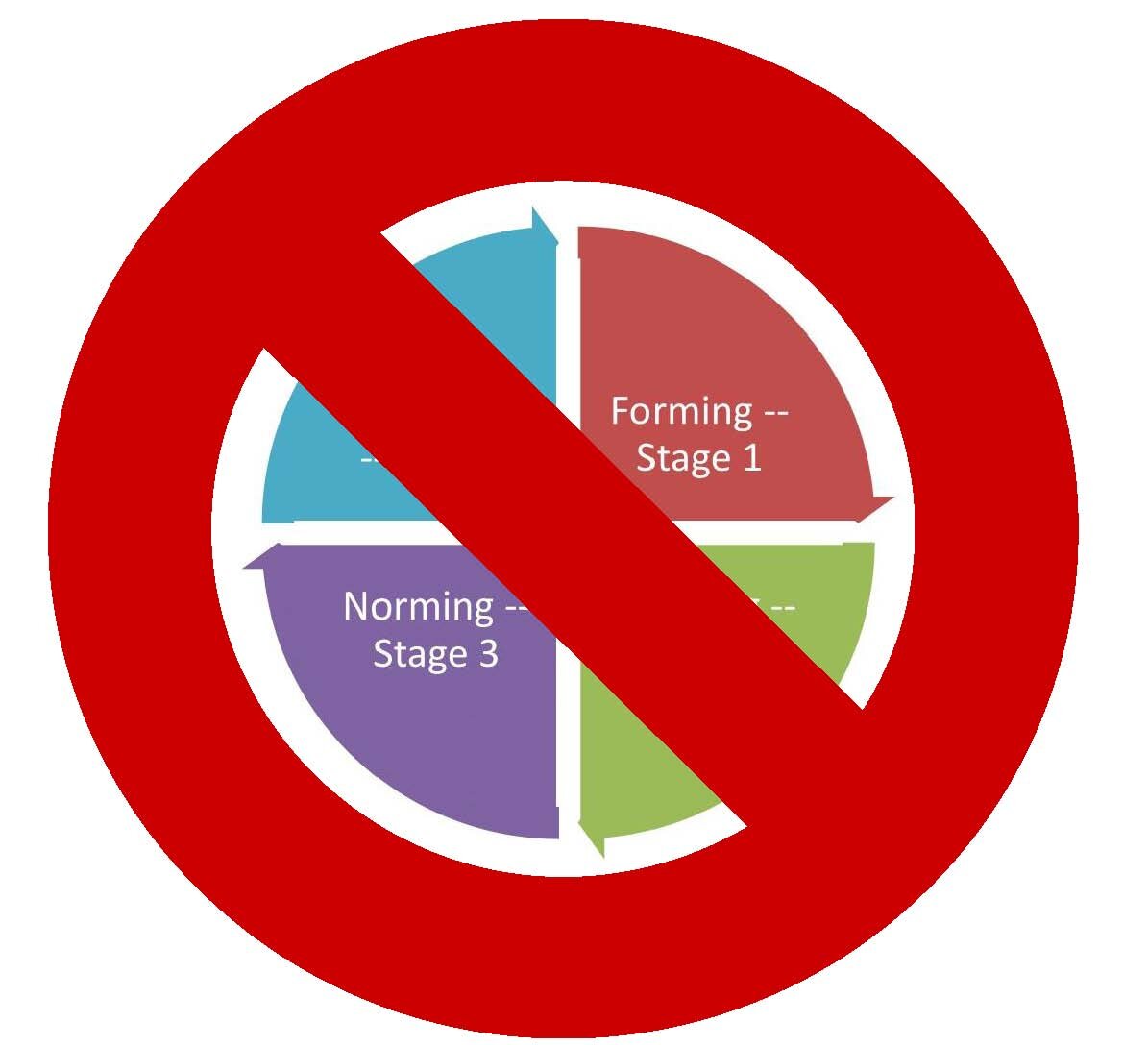The Problem With Stages Of Team Development
Just because someone with a degree says your team needs to assess its stage of development doesn’t mean it will help anything.
Mars, Inc decided to move away from using Tuckman’s Four Stages of team development for team development. Why, you ask?
What you need is a Team Stage Assessment. Not.
In 2008 I was a part of the Mars University team. Out of the blue a consultant had contacted my boss, Jim, about a survey he had created that he thought Mars might find useful. I don’t recall if this survey focused on leadership or culture or something else. Regardless, Jim agreed to have his team, including me, take this survey and then debrief it with the consultant in the spirit of learning something new that might be a good fit for Mars.
About a month later, we gathered in a meeting room in the Mt. Olive, NJ office to meet with this consultant from Hawaii. We’ll call him Stan. Stan was a stately, carefully if casually dressed gentleman who had retired from corporate life but continued to work as an independent consultant. He was soft-spoken but clearly knowledgeable. We were well into the debrief of the survey results and I recall thinking, “So, what’s the point? What are we going to do with this information?” I saw others growing impatient, too. It was at that moment that Stan quietly asked if he could say something, share an observation. Jim said, “Sure, go right ahead.” Leaning back in his chair, Stan said “Based on the survey, on phone conversations I’ve had with a few of you, and on seeing you interact in the room today, I’d say that Mars may be the least reflective culture I’ve ever seen.” We all cracked up.
knowing what to do is more useful than knowing what stage we’re in
His observation was spot on. Mars is, always has been, an action-oriented, results-driven organization. Mars Associates get stuff done and don’t let much get in their way. I would see the same trait reflected in the data I collected a couple of years later when I found myself working on a teamwork module for a global management development program we were designing.
A couple of years after the session with Stan, I was searching for the right teamwork model to use in that training program. I realized that many of the models I was considering were academic. Even one as seemingly simple as Tuckman’s Four Stages model with its nicely rhymed stages of Forming, Storming, Norming and Performing, is a psychological model; it’s based on Tuckman’s insights into how groups deal with conflict. It’s great for facilitators and consultants trained to handle conflict in groups. I’d used it extensively myself. I didn’t feel it would work as a tool for the typical early-career manager who would have little if any background in group theory and facilitation and who, being as un-reflective as the rest of us, would want to just get on with getting the work done.
““So, what’s the point? What are we going to do with this information?””
We needed something more practical, something that would appeal to results-focused managers and fit the Mars culture with its preference for action NOW. Of course, teams need to reflect in order to learn and grow. But our approach would be weighted towards “What are we going to do?” not “What stage are we in?” It would draw teams into reflecting about how they would have to be and act together in order to move forward successfully. Rather than focusing on what’s not working, e.g., why aren’t we handling conflict well?” it would invite team reflection on what’s needed for them to move forward. They might find they need to address conflicts differently, but only as it served their insistent urge to make progress and produce results.
Orthopraxy vs Orthodoxy
I’d been a yoga teacher for years at this point. Yoga, at least as it’s practiced in the West, it’s all about physically doing. So, I borrowed an idea from my yoga philosophy instructor, who talked about the difference between orthodoxy and orthopraxy.
Orthodoxy means right speaking or right saying. It’s talking about things in a supposedly “right” way. For example, “There are four stages all teams go through,” is orthodoxy in team development. Orthopraxy, by contrast, means right practices. The yoga I learned cared less about what some sage or teacher said was, “the right way” and more about doing things that felt right and were good for us. It is a super-practical approach to yoga compared to others that get caught up in fancy words and ideas.
I was certain that our module on teams and team effectiveness needed to establish a set of right practices for teams, attuned to our less reflective, action- and results-oriented culture. That is precisely what we did. In upcoming blog posts I’ll go into what those practices are and how they we designed them to tap into the drives that are at the heart of the Mars culture.


